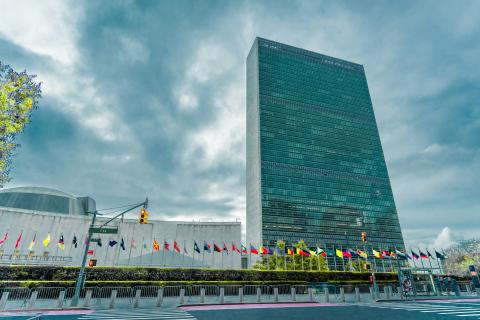
Sympathies for socialism are on the rise.
Over the past decade, and in polls conducted as recently as this year, more than half of Americans in their 20s and 30s have self-identified as favoring socialism over capitalism.
On one level, this may come as no surprise: lots of us have probably felt the stirring of these political opinions for some time now, especially in the leadup to and the aftermath of the past few presidential elections.
But on another level, this turning tide ought to come as a surprise, simply because socialism has, pretty definitively, shown itself not to work. Governments that have taken the leap of faith toward a formally socialist or communist model have either failed or have begun to. Even in Europe, where democratic and free market ideals have been tempered in recent years by soft socialist ones, the resulting cracks have started to show – whether in controversies having to do with free speech and censorship, or in attempts to harangue certain political parties, or in increasingly serious economic woes.
So what is the enduring attraction of socialism, all the same? Why does it continue to stir and fascinate people’s imaginations, even so?
For lots of reasons, surely. But one trend worth noting is that socialism tends to gain traction at moments when motivations for taking personal responsibility are waning, for one reason or another. Serious social ills rear their heads – injustices and inequalities – and we think, “That’s evil. Something needs to be done about that.” But that “something” comes with a spectrum of who is responsible for it – the individual; or “society,” the government, those “in charge.”
In cultures that have been guided by Christian ideals or, more generally, ideals that prioritize the completion of individual human character, a strong sense of personal agency and responsibility have been more easily come by. Yes, social and economic policy might need to be adjusted in various ways, but it’s also been more readily acknowledged that I, too, have it in my power to love my neighbor, to do something for those around me who are suffering.
When such ideals are not strong, a large share of the burden of responsibility gets transferred to the state. The problem is “out there,” in the way the social world’s been put together. Structures of governance or of social, political, and economic organization thus become the most obvious targets to blame for the systemic problems that seem ubiquitous, and their reorganization becomes the logical silver bullet for all human ills.
But this reveals a misguided anthropology, on a few levels. For one, it’s utopian in its character – flawed in believing that a perfectly peaceful and egalitarian society is possible if we only fit the right key into the right lock. For a fallen human populace, that’s a lock and key we’ll never find, this side of heaven. Even further, though, the high ideals such a vision aspires to – ideals of an ennobled and uplifted human community – get cut off at the knees by that very vision itself, in its valorization of the communal to the diminishment of the individual. To retain a sense of personal responsibility for the state of our world is to retain, also, a recognition of one’s own capacity to affect it. I do have it in my gift to extend charity to the poor, the suffering, those on the fringes. And that’s ennobling; that’s dignifying, maybe even more so than having my dignity stamped onto me by a state’s reformulated, “equitable” policies.
Lots of cultural commentators have noticed that young people today are living less boldly, and with more fear. Whether it’s the effects of social media, of a mental health crisis, or of a widening spiritual void, they are more reticent to be far from home, physically or emotionally. They’re more unsure of themselves in school, in careers, in planning for family life. They’re shy of taking personal, social, or professional risks.
And when such a disposition to life has taken hold, it’s no surprise that the idea of socialism would be a dreamy and comforting one. There’s someone else – some vague “society” or “government” – to do the heavy lifting of making a difference for the world, for the poor or the suffering that it takes courage, indeed, to engage. But it’s good to remember that deferring responsibility is not what we’re made for. That our creative and engaged minds are fitted for a much higher dignity: a dignity of knowing oneself held to account, and capable of living up to it.


